Children's Crisis Intervention
Children's Crisis Intervention Conference
Hosted by OMHSAS in collaboration with Temple University Harrisburg, this inaugural event focuses on enhancing crisis intervention services for children, youth, and young adults. Join us for two days of educational sessions, state updates, clinical best practices, and networking opportunities designed to support counties, providers, and families in navigating behavioral health crises.
The Children's Crisis Intervention Forum is sold out. Please click "Register Now" to join our wait list to be notified if additional registrations become available.
Dates:
- Tuesday, April 29, 2025 - 9:00am-6:00pm
- Wednesday, April 30, 2025 - 9:00am-3:30pm
Location: Hilton Harrisburg located in Harrisburg, PA
Register to Attend the Conference
Registration Information:
- Professional Attendee: $45 (regardless of one or two-day attendance)
- Family & Youth with Lived Experience Attendee: cost can be waived
Please email CCIFinfo@temple.edu with registration questions.


Conference Schedule
Tuesday, April 29th
- 7:45am-8:45am Registration & Breakfast
- 9:00am-12:00pm Presentations from State Partners
- 12:00pm-1:00pm Lunch
- 1:00pm-3:30pm Presentations from State Partners
- 3:30pm-4:30pm Lived Experience Presentations
- 4:30pm-6:00pm Community Building + Food & Drinks
Wednesday, April 30th
- 7:45am-8:45am Breakfast
- 9:00am-10:30am Keynote Speaker
- 10:30am-11:30am Breakout Sessions - Round 1
- 11:30am-12:30pm Breakout Sessions - Round 2
- 12:30pm-1:30pm Lunch
- 1:30pm-3:30pm Panel Session
Description of Sessions
DAY 1 SESSIONS
Presentations from:
- Office of Mental Health and Substance Abuse Services
- Office of Mental Health and Substance Abuse Services, Bureau of Children's Behavioral Health Services
- Office of Mental Health and Substance Abuse Services, Bureau of Policy, Planning, and Program Development
- Pennsylvania Department of Education
- Office of Child Development and Early Learning
- Office of Developmental Programs
- Office of Children, Youth, and Families
Lived Experience Session
Breaking the Silence: Empowering Youth Through Peer Support and Lived Experiences
Speaker: AmandaGrace Krier
Description: This powerful and personal session explores the emotional impact of suicide loss, as shared through the lens of a survivor-turned-advocate. Participants will gain insight into the ripple effects of suicide on families, friends, and communities, and discover how lived experiences can fuel meaningful advocacy for mental health and suicide prevention.
The course highlights the current state of youth mental health, the barriers posed by stigma, and the critical role of peer support in reaching struggling young people. Through practical strategies, attendees will learn how to foster empathy, create brave spaces, and empower youth to lead peer-driven initiatives that make a real difference. Designed for both youth and adult supporters, this session emphasizes collaboration, encourages open dialogue, and offers actionable steps to build compassionate, supportive communities. The course concludes with an interactive Q&A and a call to action, inspiring participants to become advocates for change in their schools and beyond.
Learning Objectives: 1) Learners will be able to articulate their own lived experiences in a way that fosters understanding and empathy among peers. 2)Learners will be able to demonstrate peer support strategies to build a supportive community among youth. 3) Learners will be able to identify key components of effective youth advocacy and leadership and develop a personal action plan to apply these skills in their community. 4) Learners will be able to implement strategies for creating and maintaining brave spaces that encourage open and respectful conversations.
DAY 2 SESSIONS
Keynote Session
Customizing Crisis Systems to Meet the Unique Needs of Children, Youth, Young Adults, And Their Families
Speaker: Elizabeth Manley
Description: Customizing the crisis system to meet the unique needs of young people and their families focuses on intervening early within the crisis cycle. Crisis care is an essential component with a good and modern children's behavioral health continuum. Customization focuses on meeting urgency with urgency. The crisis system is designed to provide youth and caregivers with short-term, flexible service coordination to assist youth in their communities and maintain connections that keep youth in the current living setting. The customization of the crisis system for children, youth and families and is specifically designed to prevent visits to the emergency departments, inpatient hospitalization admissions, residential interventions and moves within the foster care system. This presentation will focus on why customization is necessary, how to customize the crisis continuum and the role the child serving system.
Learning Objectives: 1) Participants will learn the core components of a customized crisis system. 2) Identify the importance of child specific assessment tools. 3) Understand key strategies in engaging young people and families. 4.) Identify the importance of community engagement.
Breakout Sessions - Round 1 (10:30a-11:30a)
Drawing the Line: Creating Healthy Boundaries to Improve Self Care
Speaker: Jennifer Foxworthy
Description: Learn to identify, create, and implement healthy boundaries to enhance self-awareness, boost self-care, and improve both personal and professional well-being. This session will provide practical strategies and techniques to help you establish meaningful boundaries that foster personal growth and resilience.
Learning Objectives: 1) Identify acceptable and unacceptable behaviors. 2) Gain an understanding of how boundaries help improves self-awareness and self-care. 3) Discover ways to create healthy boundaries. 4) Implement strategies and techniques to create healthy boundaries personally and professionally.
“After the Keynote”: Implications for Clinical Practice in Crisis Care
Speaker: Elizabeth Manley
Description: Customizing the crisis system to meet the unique needs of children, youth, young adults and their families requires leadership. This workshop will focus on leadership, workforce development, community engagement and data collection strategies necessary for implementation.
Learning Objectives: 1) Identify the importance of shared leadership in building crisis systems. 2) Describe the essential components of a crisis system designed to meet the unique needs of youth and families. 3) Identify multiple strategies in shifting the culture within the workforce necessary to customize care. 4) Increase understanding of the practice shifts necessary to customize crisis care for children, youth and families.
Crisis Safety Planning with Youth & Families
Speaker: Amanda Gillespie and Heather Distin
Description: This session will provide an overview of safety planning as a collaborative process that includes the youth and their family/caregiver. Participants will identify important elements of a comprehensive and individualized safety plan and explore ways to engage youth and their families in the process. The session will provide participants with an understanding of youth and family crisis cycles and effective response and de-escalation strategies.
Learning Objectives: 1) Participants will explore ways to engage youth and families in the safety planning process. 2) Participants will be able to individualize safety plans based on the identified needs of the youth and family. 3) Participants will identify important components to include in a safety plan.
"The Psychological Flexibility Model" in training Crisis Intervention staff
Speaker: Drew Martel
Description: In youth crisis situations, rigidity—both in thinking and behavior—can escalate distress and limit effective problem-solving. In this session, Drew introduces Psychological Flexibility as a practical framework for training crisis intervention staff and supporting youth during moments of acute emotional crisis. Participants will learn actionable strategies to foster flexibility in themselves and the youth they serve, enhancing both immediate crisis response and long-term resilience. Through demonstrations, skill practice, and real-world applications, participants will leave with a crisis intervention framework and tools they can implement to promote adaptive coping and reduce escalation in crisis interactions.
Learning Objectives: 1) Define psychological flexibility and explain its relevance to youth crisis intervention. 2) Demonstrate at least three practical strategies for fostering psychological flexibility. 3) Describe how crisis intervention staff can model and support flexible responses in clients.
Black Youth Suicide Prevention: Risks, Clinical Considerations, and Policy
Speaker: Dr. Rhonda C. Boyd
Description: Black youth suicide has received national attention over the last several years due to the increasing rates of suicide deaths and attempts that have been shown in studies, as well as federal datasets. This session will cover recent trends in suicidal behaviors among Black youth as well as risk and protective factors unique to this population. The session will provide an overview of assessment and interventions for suicide prevention through a culturally and developmentally responsive lens. Finally, the session will familiarize the audience with local and national policy initiative focused on Black youth suicide.
Learning Objectives: 1) Participants will increase knowledge of recent trends of suicidal ideation and behaviors, as well as policy initiatives, for Black youth. 2) Participants will be able to identify common risk and protective factors for suicide risk among Black youth. 3) Participants will explore ways to assess for and intervene with suicidal ideation and behaviors with Black youth.
Big Emotions
Speaker: Lauren Walters and Jenn Poole
Description: Equip yourself with the tools to recognize and understand emotions, both yours and your students', in this interactive session. Learn effective strategies to manage big emotions in the classroom while fostering a supportive and self-aware teaching environment.
Learning Objectives: 1) Teachers will develop the ability to support both themselves and students in recognizing and understanding their emotions. 2) Teachers will be equipped with effective strategies to respond to and manage big emotions in the classroom.
Breakout Sessions - Round 2 (11:30a-12:30p)
Cultivating a Calling in Your Community
Speaker: Ashley Nichols
Description: “Cultivating a Calling in Your Community” focuses on fostering a supportive environment through collaboration, compassion, and connection. This approach is designed to have a positive impact on those being served, strengthening relationships, and building a foundation for growth in the community.
Learning Objectives: 1) Develop effective collaboration and networking skills to strengthen community relationships. 2) The ability to provide effective supervision and develop leadership skills that support the growth of others. 3) Gain an understanding of trauma informed care and supervision, to support workforce, and provide the most appropriate services. 4) Have a model for cultivating growth in your own workforce.
G.U.M.B.O.: Creating the Perfect Recipe to Overcome Adversity
Speaker: Jennifer Foxworthy
Description: Discover the perfect recipe to navigate adversity with strategies that foster growth, empower positive change, and inspire resilience in challenging times. Learn how beliefs, attitudes, and actionable techniques can help you transform obstacles into opportunities.
Learning Objectives: 1) Gain an understanding of belief, morals, and attitudes. 2) Gain an understanding of how negative attitudes can deter growth. 3) Develop and implement positive techniques and strategies to overcome adversity. 4) Empower audience to make healthy changes for a better life.
Facilitation Skills that Enhance Child & Family Teaming
Speaker: Amanda Gillespie and Heather Distin
Description: This session will cover core skills and tasks necessary for facilitating effective child and family team meetings. Participants will explore ways to support youth and their families through a resilience and strengths-based framework that prioritizes their individualized needs. The session will provide participants with an understanding of needs planning versus service planning and effective facilitation strategies that enhance child and family teaming.
Learning Objectives: 1) Participants will be able to describe at least (2) resilience promotion planning areas of focus. 2) Participants will be able to identify at least (2) micro-skill facilitation strategies. 3) Participants will be able to identify at least (2) core skill facilitation objectives.
Supports for Children 0-5 in the Early Childhood Environment
Speaker: Lindsay VanDyke and Joy Polignano
Description: Looking for resources to help support infants, toddlers, and young children develop positive social-emotional skills and to support the implementation of effective strategies to decrease challenging behaviors? During this session, presenters will highlight trainings and resources developed by the Office of Child Development and Early Learning (OCDEL) to support the needs of Pennsylvania professionals working with young children and their caregivers. Participants will be shown how to access these featured resources on The Pennsylvania Key webpage and the Early Intervention Technical Assistance (EITA) Portal and Mobile App.
Learning Objectives: 1) Introduce and provide a high-level overview of key resources on The Pennsylvania Key webpage and the Early Intervention Technical Assistance (EITA) Portal focusing on social-emotional development and how they can be accessed. 2) Discuss services available through OCDEL's Infant Early Childhood Mental Health (IECMH) Program in early childhood settings and related IECMH resources. 3) Highlight social-emotional/behavioral resources on the EITA Mobile App for early childhood professionals and families.
Clear Roles, Effective Response: How Schools and Crisis Teams Can Collaborate During Emergencies
Speaker: Scott Kuren and Dana Milakovic
Description: This session will equip school personnel and crisis intervention team members with a clear understanding of their distinct yet interconnected roles during a school crisis, emphasizing effective collaboration for an optimal response.
Learning Objectives: 1) Audience will identify the typical roles and responsibilities of both school-based and external crisis intervention team. 2) Audience will explain the importance of clearly defined roles in ensuring effective and coordinated response during a school crisis. 3) Audience will be able to develop strategies for proactive role definition and communication between school and and external crisis teams.
Assessing and Responding to Crises Using a Holistic Approach
Speaker: Heidi Arva, Amanda Meskunas, Jayme Mutschler-Crowder, & Shannon Rico
Description: This workshop will provide an overview of the Office of Developmental Programs' approach to navigating crises among children and adolescents. We will highlight how to build a comprehensive assessment to identify potential risk factors that could lead to a crisis, implement a collaborative approach to support the child during the crisis, and apply best practices to revise the plan following a crisis. We will share resources and tools used within ODP throughout the workshop.
Learning Objectives: 1) Understand ODP's approach to preventing and responding to crises in children and adolescents. 2) Learn how to build effective assessments that identify risks, skill deficits, and strengths. 3) Apply best practices for crisis response, including plan revision and cross-system collaboration.
Keynote Speakers
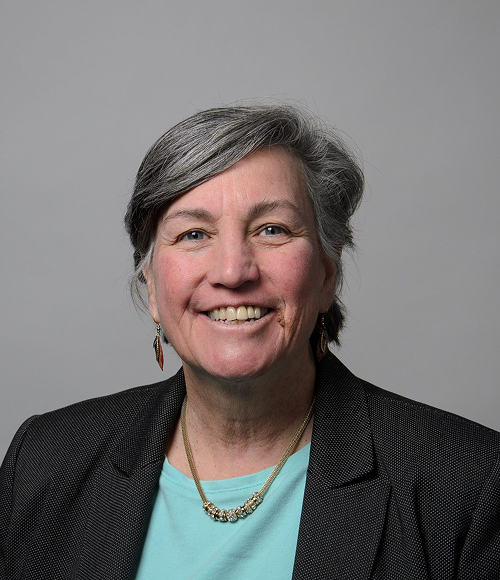
Elizabeth Manley - Keynote Speaker
Elizabeth Manley is nationally recognized for her expertise in children's behavioral health, intellectual/developmental disability and substance use systems design, policy and financing. Elizabeth has a specific focus on innovation and evidence-based practice implementation with states and communities. Her 30 years of executive leadership at the national, state, and provider levels in both the public and private sectors have given her a unique understanding of the complexity of systems in these areas.
Elizabeth is a Senior Advisor for the Innovations Institute at the University of Connecticut School of Social Work. In this capacity she is a thought partner for leaders in service systems design.
Elizabeth is the former Assistant Commissioner for NJ's Children's System of Care. In this capacity, Ms. Manley led transformation and implementation of system innovations including integrating individuals with developmental/intellectual disabilities, substance use and integration of physical health into the Children's System of Care. She had direct oversight of the statewide child behavioral health; substance use and development/intellectual disabilities systems. This includes a wide range of home and community-based services, outpatient and residential interventions. Elizabeth was the DCF representative on the NJ Board of Social Work Examiners and the Governor's Council on Alcohol and Drug Abuse; the Principal Investigator on NJ's Promising Path to Success, a SAMHSA System of Care Expansion Grant with the focus on improving care for youth in need of a residential intervention; Vice Chair of the National Association of State Mental Health Program Directors (NASMHPD); and has presented at several national conferences.
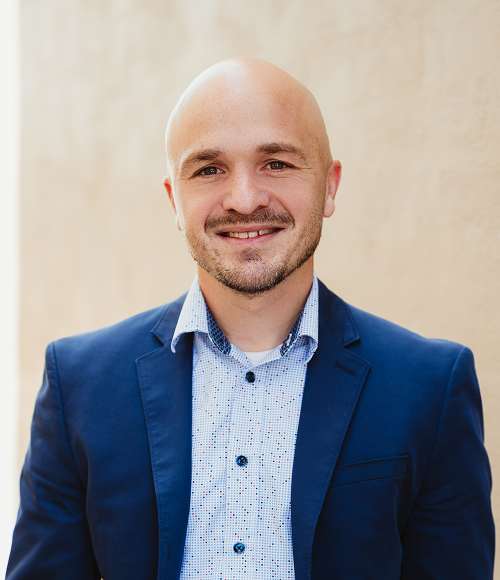
Drew Martel
Drew Martel, LISW, CADC, is a nationally recognized expert in crisis intervention and suicide prevention, with extensive experience developing and leading crisis response programs. As the Chief Clinical Officer at CommUnity Crisis Services, Drew oversees clinical operations on crisis helplines, mobile crisis outreach, youth crisis stabilization services, and suicide prevention initiatives. In addition to his leadership in direct crisis services, he serves as a trainer and site surveyor for the American Association of Suicidology (AAS), conducting accreditation reviews and supporting crisis centers in maintaining national best practices. He has played a key role in shaping crisis response policies, securing state grants for suicide-specific training, and authoring national standards for mobile crisis outreach. Drew has presented at national and state conferences on crisis intervention, ethics, and suicide prevention. With a background in direct clinical care, program development, and quality assurance, Drew brings a wealth of expertise to his work supporting children and families in crisis.

Ashley Nichols-Kaye
Ashley Nichols-Kaye MS, MHP, CHCO, Program Manager-Human Services Quality Management/HIPAA Compliance Officer at Venango County Human Services will be presenting “Cultivating a Calling in Your Community”. Ashley was born in New Jersey and raised in Southwest Florida. She then spent nearly a decade overseas where she obtained her Master's Degree in Sociology from the University of Gothenburg in Sweden. Ashley moved to Venango County in 2005, where she began her career within the Mental Health field. She has experience working as a Clinician, a Program Director for Family Based Mental Health, a Unit Director for Venango County's Protective Intake Crisis Unit, as well as Quality Management and Compliance Program Manager. Ashley has spent the last two decades working within various roles of the Mental Health field and hopes to bring a systems perspective to creating environments that facilitate growth and promote change.
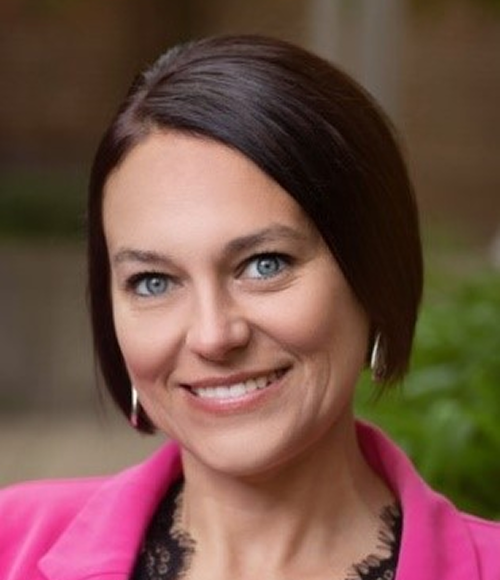
Heather Distin
Heather Distin is the Project Director of the Child and Adolescent Behavioral Health Center of Excellence, at Case Western Reserve University. Heather has 20 years of experience in various community based and inpatient behavioral health clinical settings serving families, children, adolescents, and transitional age youth. Heather has a special interest in and expertise working with youth who have complex needs that cross multiple systems. In her work with multi-system youth, Heather has been a change leader, promoting inter-agency collaboration and best practices across the various child-serving systems. Heather has served as a county board behavioral health administrator monitoring the fitness of the children's behavioral health continuum of care, ensuring access to high quality care while also leveraging resources to promote system sustainability. Heather has spearheaded several county-wide, multi-discipline system of care initiatives and county-wide quality assurance efforts specific to intensive home-based programs, youth crisis services, transitional age youth services and juvenile justice involved youth with behavioral health needs. Heather holds a master's degree from John Carroll University and is an independently licensed clinical counselor with supervision designation.

Amanda Gillespie
Amanda Gillespie is a Licensed Independent Social Worker with Supervision designation. She has over a decade of experience in various community-based settings serving families, young adults, children, and adolescents. Amanda has a special interest in crisis intervention and previously managed a youth crisis program that provided risk assessment, safety planning, and intensive care coordination to successfully link youth and their families to supportive services. Currently, Amanda is the Mobile Response and Stabilization Services (MRSS) Coordinator with the Child & Adolescent Behavioral Health Center of Excellence at Case Western Reserve University. She is also a certified Applied Suicide Intervention Skills Training (ASIST) trainer through LivingWorks.

Jennifer C. Foxworthy
Jennifer served our country proudly for 21.7 years. She is a retired U.S. Navy veteran, who is pursuing her second career as the Founder and CEO of Inspirationally Speaking, LLC, and the Founder and CEO of Unstoppable You Ministries, Inc. Jennifer continues to be of service to others through her purpose and passion as an award-winning motivational speaker, international published author of “Tomorrow My Sunshine Will Come: Memoirs of Women Who Survived Domestic Violence,” event organizer and host of Unstoppable You Conference, television show host of Living Unshackled ON Purpose, corporate trainer, public speaking coach, as well as prolific blogger of “G.U.M.B.O.”
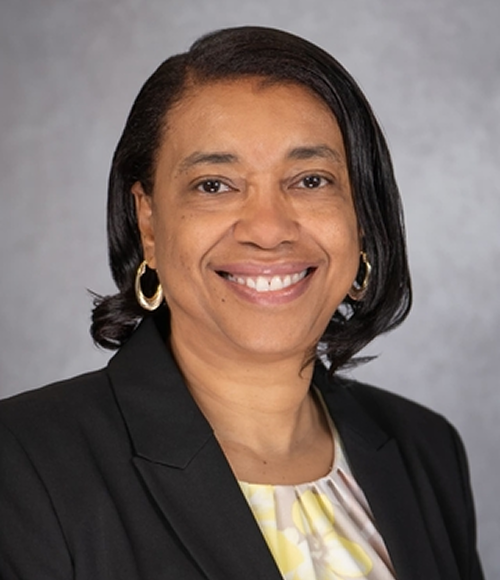
Dr. Rhonda Boyd
Dr. Rhonda Boyd (she/her) is a faculty member at PolicyLab at Children's Hospital of Philadelphia (CHOP) and an associate professor of Psychology in Psychiatry at the University of Pennsylvania School of Medicine. She is also the associate director of CHOP's Child and Adolescent Mood Program, where she specializes in evaluating and treating youth with depression and suicide risk. Her research focuses on risk and protective factors for urban children and mothers, as well as developing interventions for racially and ethnically diverse populations. She has led and collaborated on multiple federally funded studies, including grants from the National Institutes of Health and the Maternal and Child Health Bureau.
Beyond her clinical and research work, Dr. Boyd has been deeply involved in efforts to address mental health disparities. She co-chaired a task force for the Society for Prevention Research and contributed to the Congressional Black Caucus Emergency Taskforce on Black Youth Suicide & Mental Health. She is a fellow of the American Psychological Association and a member of the National Scientific Council on Adolescence. Dr. Boyd earned her PhD in clinical psychology from the University of Iowa and completed postdoctoral fellowships at Johns Hopkins University School of Public Health, along with a federal policy fellowship in child development and mental health.

Jennifer Poole
Jennifer Poole is a Blended-Age Mental Health Consultant for PA Keys. As a consultant, Jenn supports childcare programs and families in developing age-appropriate accommodations to best support a child who has behavioral and/or mental health needs. She currently holds a Bachelor's degree in Early Childhood Education from Wilmington College, and a Master's degree in Educational Policy and Leadership from Ohio State University. In her 20+ years of service in the educational field, Jenn has held positions as a kindergarten teacher, childcare director, career coach, and as a mental health consultant. Jenn's greatest passion rests in supporting caregivers in building their skills and understanding of age-appropriate, trauma-informed care and supports.
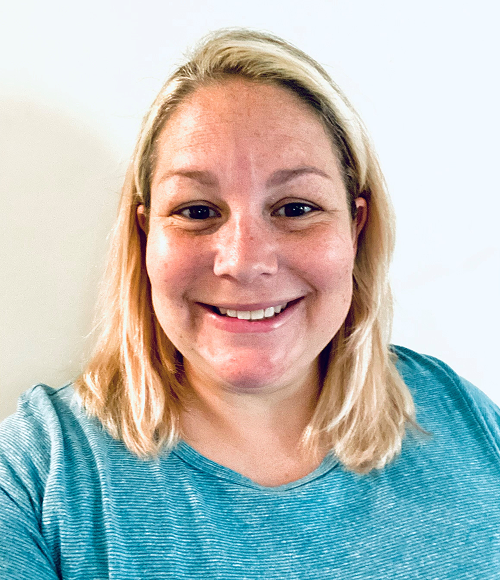
Lauren Walter
Lauren Walter is a Blended Age Mental Health Consultant dedicated to supporting the social and emotional development of children. In her role, she collaborates with teachers and families to establish strength-based goals and strategies that foster positive learning environments. Lauren is dedicated to helping teachers recognize their strengths and appreciate the invaluable impact they have on each child in their classroom.
Lauren holds a Master of Education in Early Childhood Education and a Level 2 Teaching Certification for Pre-K through 6th grade. With 11 years of experience teaching Pre-K and Kindergarten, she transitioned to her current role as a Mental Health Consultant in June 2022.
She resides in Snyder County with her husband, three sons, and their family dog, Nittany.
Hotel Information
The Children's Crisis Intervention Forum will be hosted at the Hilton Harrisburg.
- Our block at the Hilton Harrisburg is now full.
- Alternative accommodations can be reserved at the Crowne Plaza Harrisburg-Hershey, which is located 1 block from the conference hotel. Please contact them at (717) 234-5021.
-
Daily discounted parking is available in the Hilton Harrisburg
Garage for guests staying at the Hilton.
- Self Park: $10/day/car (up to 10 hours)
- Valet: $30/day/car
- Garage address: 215 Walnut Street, Harrisburg, PA 17101